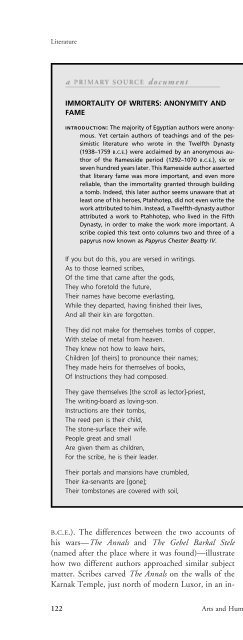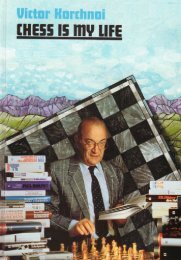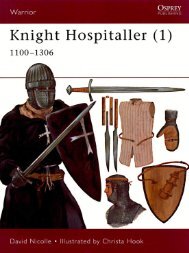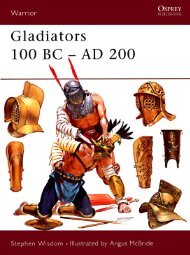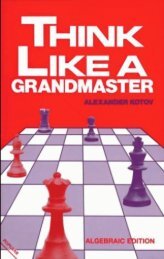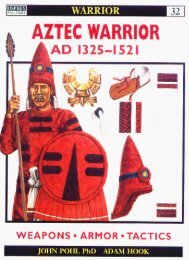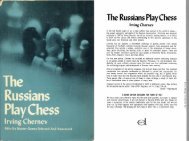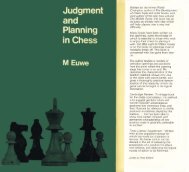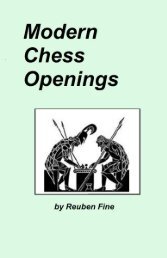Through the Eras
Edward Bleiberg ed., Ancient Egypt (2675-332 ... - The Fellowship
Edward Bleiberg ed., Ancient Egypt (2675-332 ... - The Fellowship
Create successful ePaper yourself
Turn your PDF publications into a flip-book with our unique Google optimized e-Paper software.
LiteratureIMMORTALITY OF WRITERS: ANONYMITY ANDFAMEINTRODUCTION: The majority of Egyptian authors were anonymous.Yet certain authors of teachings and of <strong>the</strong> pessimisticliterature who wrote in <strong>the</strong> Twelfth Dynasty(1938–1759 B.C.E.) were acclaimed by an anonymous authorof <strong>the</strong> Ramesside period (1292–1070 B.C.E.), six orseven hundred years later. This Ramesside author assertedthat literary fame was more important, and even morereliable, than <strong>the</strong> immortality granted through buildinga tomb. Indeed, this later author seems unaware that atleast one of his heroes, Ptahhotep, did not even write <strong>the</strong>work attributed to him. Instead, a Twelfth-dynasty authorattributed a work to Ptahhotep, who lived in <strong>the</strong> FifthDynasty, in order to make <strong>the</strong> work more important. Ascribe copied this text onto columns two and three of apapyrus now known as Papyrus Chester Beatty IV.If you but do this, you are versed in writings.As to those learned scribes,Of <strong>the</strong> time that came after <strong>the</strong> gods,They who foretold <strong>the</strong> future,Their names have become everlasting,While <strong>the</strong>y departed, having finished <strong>the</strong>ir lives,And all <strong>the</strong>ir kin are forgotten.They did not make for <strong>the</strong>mselves tombs of copper,With stelae of metal from heaven.They knew not how to leave heirs,Children [of <strong>the</strong>irs] to pronounce <strong>the</strong>ir names;They made heirs for <strong>the</strong>mselves of books,Of Instructions <strong>the</strong>y had composed.They gave <strong>the</strong>mselves [<strong>the</strong> scroll as lector]-priest,The writing-board as loving-son.Instructions are <strong>the</strong>ir tombs,The reed pen is <strong>the</strong>ir child,The stone-surface <strong>the</strong>ir wife.People great and smallAre given <strong>the</strong>m as children,For <strong>the</strong> scribe, he is <strong>the</strong>ir leader.Their portals and mansions have crumbled,Their ka-servants are [gone];Their tombstones are covered with soil,Their graves are forgotten.Their name is pronounced over <strong>the</strong>ir books,Which <strong>the</strong>y made while <strong>the</strong>y had being;Good is <strong>the</strong> memory of <strong>the</strong>ir makers,It is for ever and all time!Be a scribe, take it to heart,That your name become as <strong>the</strong>irs.Better is a book than a graven stela,Than a solid [tomb-enclosure].They act as chapels and tombsIn <strong>the</strong> heart of him who speaks <strong>the</strong>ir name;Surely useful in <strong>the</strong> graveyardIs a name in people’s mouth!Man decays, his corpse is dust,All his kin have perished;But a book makes him remembered<strong>Through</strong> <strong>the</strong> mouth of its reciter.Better is a book than a well-built house,Than tomb-chapels in <strong>the</strong> west;Better than a solid mansion,Than a stela in <strong>the</strong> temple!Is <strong>the</strong>re one here like Hardedef?Is <strong>the</strong>re ano<strong>the</strong>r like Imhotep?None of our kin is like Neferti,Or Khety, <strong>the</strong> foremost among <strong>the</strong>m.I give you <strong>the</strong> name of Ptah-emdjehuty,Of Khakheperre-sonb.Is <strong>the</strong>re ano<strong>the</strong>r like Ptahhotep,Or <strong>the</strong> equal of Kaires?Those sages who foretold <strong>the</strong> future,What came from <strong>the</strong>ir mouth occurred;It is found as [<strong>the</strong>ir] pronouncement,It is written in <strong>the</strong>ir books.The children of o<strong>the</strong>rs are given to <strong>the</strong>mTo be heirs as <strong>the</strong>ir own children.They hid <strong>the</strong>ir magic from <strong>the</strong> masses,It is read in <strong>the</strong>ir Instructions.Death made <strong>the</strong>ir names forgottenBut books made <strong>the</strong>m remembered!SOURCE: “The Immortality of Writers,” in The New Kingdom.Vol. 2 of Ancient Egyptian Literature: A Book of Readings.Trans. Miriam Lich<strong>the</strong>im (Berkeley and Los Angeles: University ofCalifornia Press, 1976): 176–177.B.C.E.). The differences between <strong>the</strong> two accounts ofhis wars—The Annals and The Gebel Barkal Stele(named after <strong>the</strong> place where it was found)—illustratehow two different authors approached similar subjectmatter. Scribes carved The Annals on <strong>the</strong> walls of <strong>the</strong>Karnak Temple, just north of modern Luxor, in an innercourt. The author remarks in <strong>the</strong> text that he basedit on extracts from <strong>the</strong> journal that military scribes keptwhile <strong>the</strong> campaigns were in progress. In addition tolists of places that <strong>the</strong> army subdued, <strong>the</strong> most remarkablesegment is <strong>the</strong> description of <strong>the</strong> council ofwar preceding <strong>the</strong> Battle of Megiddo (1458 B.C.E.). The122 Arts and Humanities <strong>Through</strong> <strong>the</strong> <strong>Eras</strong>: Ancient Egypt (2675 B.C.E.–332 B.C.E.)


